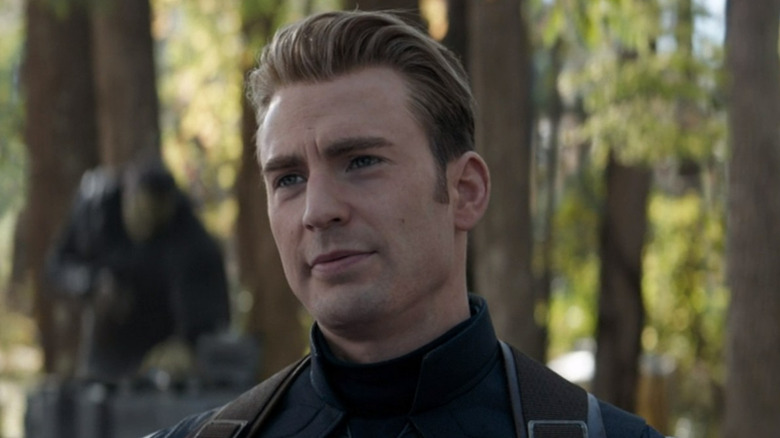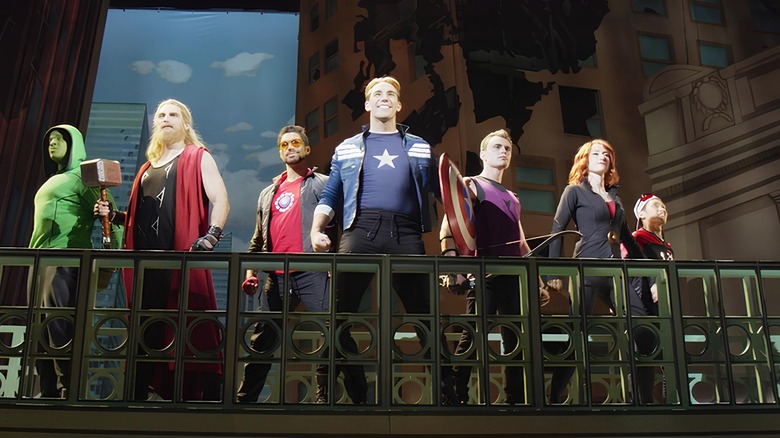Marvel Clears Up Captain America's Endgame Time Travel — In An Unexpected Place
Someone at Marvel knows how badly audiences want to see what happens to Captain America (Chris Evans) after "Avengers: Endgame." But instead of signing off on a Disney+ limited series that chronicles Steve's temporal adventures to return the displaced Infinity Stones, they greenlit a stage musical. In 2021, "Rogers: The Musical," a melodic pseudo-biography of the star-spangled man's life and a pointed parody of Lin-Manuel Miranda's "Hamilton," appeared in "Hawkeye."
The real-world fandom clearly enjoyed it more than Clint Barton (Jeremy Renner) because the fake fictional musical transitioned into a real fictional musical the following year, where it was showcased at the D23 Expo. But it didn't end there. "Rogers: The Musical" is now a full-fledged, legitimate production at the Hyperion Theater at Disney California Adventure Park, where anyone with Disney money can enjoy it.
The show primarily covers story beats familiar to MCU fans, but it goes one step further to reveal how Steve decides to stay in the past. The moment in question is set after the final battle in "Endgame" and is shared through a song called "End of the Line." An older version of Steve appears to the battle-weary hero and convinces him to keep the Time Stone, wield its power, and rejoin Agent Peggy Carter (Hayley Atwell) in the past. After all, they never got to share that dance.
Rodgers: The Musical casually commits genocide (and it's probably not canon)
The clarity provided by "Rogers: The Musical" reveals as many questions as answers. Yes, it shines a light on Steve's thought process leading up to his final departure, and yes, it explains how he ended up in a time period where no Infinity Stones were meant to be left. But it also creates the very problem Steve's temporal adventure was designed to prevent. The entire reason why Steve goes back in time is so that he may return the Infinity Stones to their original points in time.
The Ancient One (Tilda Swinton) paints a clear picture for Bruce Banner (Mark Ruffalo) of what would happen to the newly-created branching timelines should the Infinity Stones not be correctly returned. "In this new branch reality, without our chief weapon against the forces of darkness, our world will be overrun," she said. "Millions will suffer." In that scene, she's referring to the Time Stone — the very tool Steve chooses to keep for himself in "Rogers: The Musical."
Setting Steve's potential genocide on the back burner for a minute, there's also the matter of canon. Like all corollary media, there's no official word as to whether "Rogers: The Musical" is narratively relevant. And honestly? It probably isn't. In "Hawkeye," the "Save the City" sequence depicts Ant-Man fighting in the Battle of New York, evidence the musical took some artistic license. The most logical statement for Kevin Feige and his cohorts to release, should they choose, would be to assure fans that the musical is simply a musical, just like it is in "Hawkeye."

